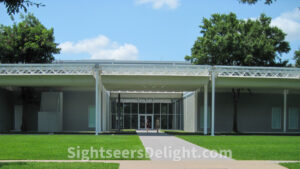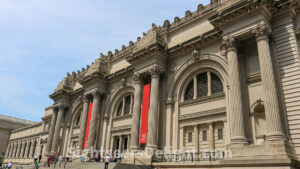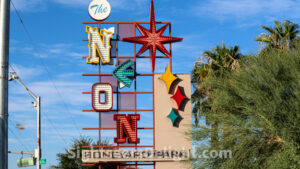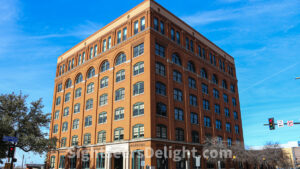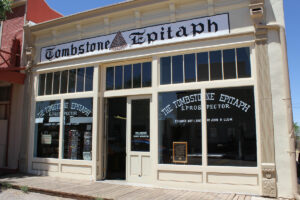New Zealand’s national museum, Te Papa Tongarewa, opened in 1998 on Wellington’s waterfront. The museum, a celebration of New Zealand’s identity – the people, culture and environment, features hi-tech and traditional displays. As well as significant collections of New Zealand art, the 16,000-plus taonga / treasures looked after by Te Papa are the largest Māori collection in any museum and cover a broad spectrum of Māori art and culture, from revered and significant cultural heirlooms through to humble everyday items dating from early pre-European times to today. In 2017, the museum was named as one of the top 25 museums in the world by TripAdvisor – the only museum in Australasia to be included.
Watching the changing of the guards at Buckingham Palace is a tradition for visitors to London. For those wanting to learn more about the guards, a visit to The Guards Museum is a must. The museum tells the story of the five regiments of Foot Guards namely Grenadier, Coldstream, Scots, Irish and Welsh Guards. The museum, which opened in 1988 in Wellington Barracks on Birdcage Walk near Buckingham Palace, chronicles the five regiments’ history from the 17th century to modern times. The museum’s exhibits include examples of Guards uniforms, weapons and various artifacts that interpret the history of the regiments and what being a soldier in the Guards is all about.
A legacy of the philanthropists John and Dominique de Menil, the Menil Collection opened in 1987. The museum presents regular rotations of artworks from its growing permanent collection, organizes special exhibitions and programs throughout the year, publishes scholarly books, and conducts research into the conservation of modern and contemporary art. The Menil Collection’s main museum building, the first building in the United States designed by Renzo Piano, anchors a park-like 30-acre campus, which also includes the Cy Twombly Gallery, a site- specific Dan Flavin installation, the Byzantine Fresco Chapel — now a venue for long-term installations by contemporary artists — and outdoor sculpture.
77006
The Met was established in 1870 and since that time has built one of the best museum collections in the world. Its collection includes works from such renowned artists as Vincent van Gogh, Claude Monet, Pablo Picasso and Henri Matisse, to name just a few. One incredible piece is by Emanuel Gottlieb Leutze, depicting Gen. George Washington leading his trips across the Delaware River.
10028
Established in 1900, the Museum of Fine Arts, Houston, is one of the 10 largest art museums. The museum is home to an encyclopedic collection of more than 65,000 works dating from antiquity to the present. The main campus comprises the Audrey Jones Beck Building, designed by Rafael Moneo and opened in 2000; the Caroline Wiess Law Building, originally designed by William Ward Watkin, with extensions by Ludwig Mies van der Rohe completed in 1958 and 1974; and the Lillie and Hugh Roy Cullen Sculpture Garden, designed by Isamu Noguchi and opened in 1986. Additional spaces include a repertory cinema, two libraries, public archives, and facilities for conservation and storage.
77005
The nonprofit Neon Museum is dedicated to collecting, preserving, studying and exhibiting iconic Las Vegas signs. The museum, founded in 1996, is home to dozens of signs that once stood outside of casinos in the city.
89101
Originally opened in 1989, the museum, tells not only the story of Kennedy’s assassination and the aftermath of his death, but puts into context Kennedy’s visit to Dallas, which was in essence the first stop of his 1964 re-election campaign. The most powerful scene in the museum is arguably the reconstructed sniper’s perch. According to the Warren Commission, Oswald organized boxes containing schoolbooks into the perch; the museum based its reconstruction on photographs taken on Nov. 22, 1963.
75202
The Tombstone Epitaph is perhaps the most revered institution in Tombstone, Arizona. John P. Clum founded the newspaper in 1880, and today, it is the oldest continuously published newspaper in the Grand Canyon State. Since the town was name Tombstone and “every Tombstone needs an epitaph,” as Clum would later say, the newspaper had its name. The publication witnessed history, when, in 1881, it reported on the now-infamous Shootout at the OK Corral. Today, the paper is a monthly journal of western history. Students at the University of Arizona continue to publish a local edition of The Tombstone Epitaph. The newspaper office in Tombstone is a museum about its role in the community.
85638
During the 1960s, the U.S. Air Force built 54 missile silos around the country, including 18 around Tucson, Ariz., to defend the country in case of attack. By the 1980s, these Titan Missile silos were obsolete, so President Reagan decommissioned them. The Titan Missile Museum opened on May 21, 1986, inside the former Titan II Missile Site 8 (571-7) in Sahuarita, Ariz., about 20 miles south of Tucson. The museum interprets life at the complex and the steps to fire the missile. The centerpiece of the museum is an inert Titan II intercontinental ballistic missile in the silo.
85614



